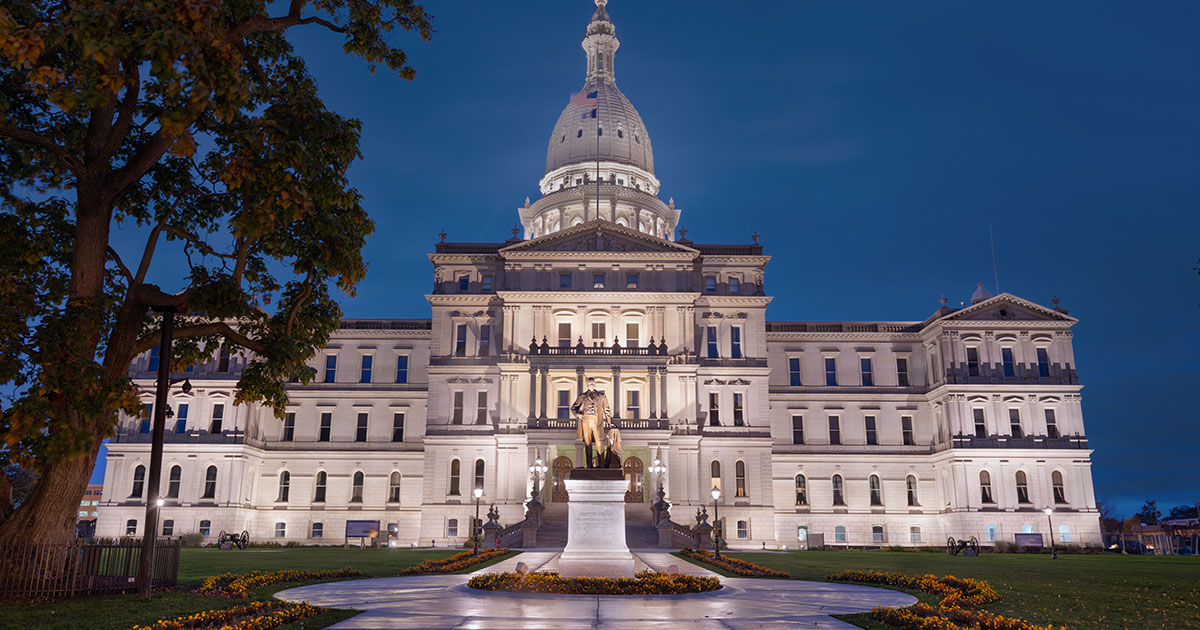|
|
|
LANSING, Mich., June 26, 2025 — State Reps. Kara Hope (D-Holt), Tyrone Carter (D-Detroit) and Amos O’Neal (D-Saginaw) reaffirmed their opposition to House Bills 4506-08 following a House Judiciary Committee vote on June 25. The Republican-backed bills outlines new sentencing procedures for 19- and 20-year-olds who were previously sentenced to life without parole. The bills, introduced by state Rep. Sarah Lightner (R-Springport), are being billed as a response to the Michigan Supreme Court’s recent rulings in People v. Taylor and People v. Czarnecki. However, Hope, Carter and O’Neal say the legislation defies the Court’s intent and imposes excessive, unjust punishments. “These bills don’t follow the Supreme Court’s mandate — they bury it,” Hope said. “Young people deserve a meaningful second chance. Instead, these bills create new burdensome sentences that ignore science, justice and the spirit of case law.” In Taylor and Czarnecki, the Michigan Supreme Court held that mandatory sentencing of 19- and 20-year-olds to life without parole violated the state’s constitution against cruel or unusual punishment. The Court also made clear that any continued use of life sentences without parole for this age group must be carefully reviewed and each young person be given individualized review in compliance with the factors under the Miller decision. But the Republicans’ legislation replaces one form of excessive punishment with another, requiring harsh sentencing ranges of 35 to 80 years, and that the terms be served consecutively (added) with other charges, among other provisions. “Republicans pretend to offer a path forward, but they leave young people stuck in the past,” Carter said. “Our Supreme Court told us to reevaluate these cases with fairness and humanity. This legislation doubles down on the very system we were told to move away from.” During a House Judiciary Committee hearing on June 25, Hope offered two amendments aimed at aligning the Republicans’ bill package with the Court’s precedent. One amendment would have restricted consecutive sentencing to only cases involving multiple murders, and the other would have adjusted the sentencing range to 25 to 60 years, aligning it with the law covering 17- and 18-year-olds. Both amendments were rejected by House Judiciary Committee Republicans. “We offered two amendments grounded in a well-established scientific fact: the part of the brain responsible for weighing risks and understanding long-term consequences doesn’t fully mature until around age 25,” Hope said. “That universal fact must inform how we hold young people accountable. It’s what the courts have recognized, and we tried to put it into law.” The Sentencing Project, a research and advocacy center seeking to improve the U.S. criminal justice system, joined the representatives in opposing the bills. “We oppose these bills because they seek to undermine the Michigan Supreme Court’s recent decisions holding that mandatory life without parole sentences for young people under 21 are unconstitutional,” said Nicole D. Porter, Senior Director of Advocacy at the Sentencing Project. “We urge this legislature to support Representative O’Neal’s HB 4211, which focuses on providing re-entry services for individuals found eligible for resentencing and eventual release under the Court’s decisions.” Hope, Carter and O’Neal say they will continue to advocate for changes that reflect the intent of the Taylor and Czarnecki decisions and offer young people the chance at redemption that the Court affirmed they deserve. “We can’t stop at resentencing. We also need to make sure these young people have the tools to succeed after release,” O’Neal said. “That means making sure they have access to re-entry programs like housing support and job training. If we’re serious about second chances, we have to make sure they’re supported every step of the way as they transition back into civilian life.” ### |

